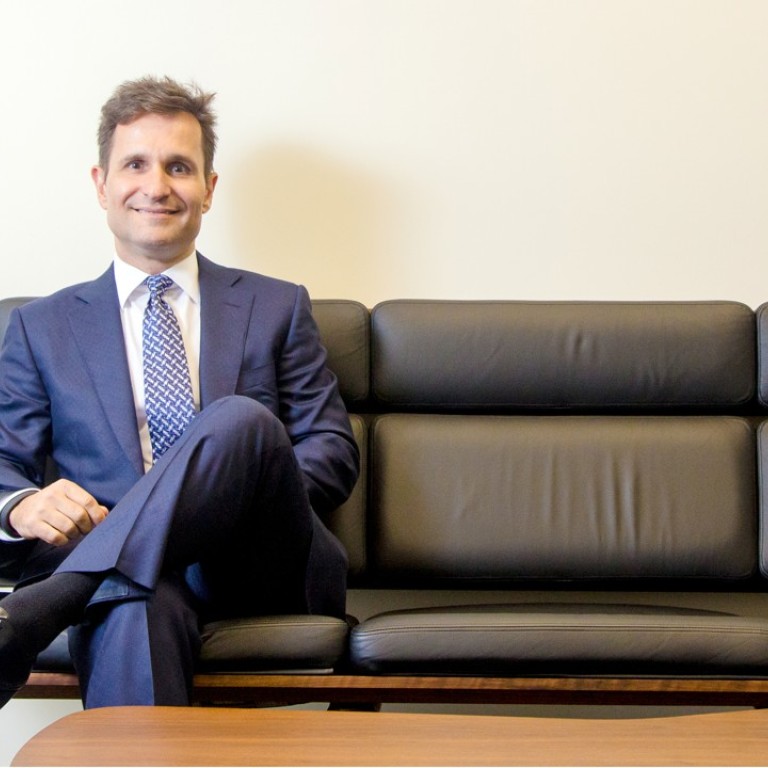
Is the burgeoning co-working office market set to overheat?
Paul Salnikow, a 28-year veteran of the Asian office market who now runs The Executive Centre, says ‘yes’, insisting margins are already thinning
Despite all the recent hype surrounding the growing appeal of co-working office space, the chairman and chief executive of one region’s leading serviced office operators has a sharp warning: “watch out!”
Paul Salnikow, a 28-year veteran of the Asian office market who now runs The Executive Centre, says co-working oversupply is already becoming a major problem in some countries, and that the current upward economic cycle might have run its course, presenting an unexpected shock to an already vulnerable sector.
“The problem for co-working spaces is not their products. Their products are good. The problem is oversupply, which has crushed some prices and made margins difficult,” Salnikow says.
“There are lots of short-term players in the industry now. Investors are thinking all they have to do is build, lease and open for business. But genuine investor want solid revenues and profits.
“A lot of people have discovered that flexible and co-working spaces are exciting. They are opening spaces, taking whole buildings, fitting them out, buying nice furniture … but what happens next? You have to ensure paying clients.”
Salnikow said that fierce competition has already driven rents for such spaces to levels that hardly make a profit, and retention rates for some operators remains very low.
His company does not compete in this tightening market, however.
Founded in 1994, Executive Centre describes itself as a premium serviced office operator that targets multinationals and big Chinese companies only.
The majority (72 per cent) of its client base is well-established companies and includes heavyweights such as Alibaba Group, Apple and J.P. Morgan.
Salnikow likes to think of its offering as similar to business-class in the airline industry, where oversupply poses few problems.
At the end of last month, the Hong Kong-headquartered Executive Centre had 115 centres in 29 cities in 15 countries, with more than 19,000 member clients. Its revenue grew 31 per cent last year, he said.
“Big companies look for location, IT, look and feel: different standards. Co-working spaces targeted at start-ups don’t have much money. They are easy to come by, but also easy to leave – so you have to continue to sell and sell.”
He added that established firms have chosen The Executive Centre in the past for its flexibility: it offers shorter lease terms (as short as one month, versus at least three years for traditional landlords), quick move in procedures, and flexible rental space.
Big companies look for location, IT, look and feel: different standards. Co-working spaces targeted at start-ups don’t have much money. They are easy to come by, but also easy to leave – so you have to continue to sell and sell
The company earns 40 per cent of its revenue from China and its 400-strong staff are native Chinese speakers, who also speak English or other languages.
They rely heavily on WeChat, the most popular communication app in the mainland, for new business, and for day-to-day contact among themselves. Shanghai is its largest mainland market, followed by Beijing, Shenzhen, Tianjin and Guanghzou.
Although the global economy continued to enjoy solid momentum last year, which supported the region’s overall office industry, Salnikow is still cautious that this optimism could lead to over expansion, before the music finally stops.
“It’s almost 10 years since the last recession. Hopefully the next downturn is far away, but it will happen and when it does, many companies will be in trouble,” he said.
“We learned from 9/11 and from the global financial crisis. When you go through ups and downs, you learn lessons on cost control and managing your size.”
Most of the company’s centres operate in the hearts of cities instead of their suburbs or outer edges, where space is easier to find and cheaper to acquire.
“We are very selective, and say ‘no’ to most opportunities,” said Salnikow.
“Our standard sites are core CBD areas – good buildings, really well fitted out.”

